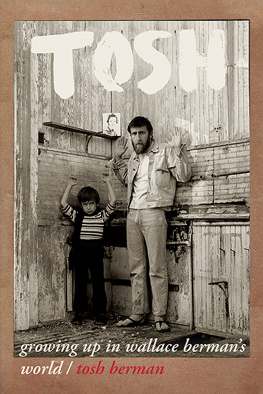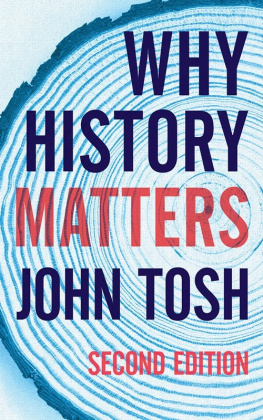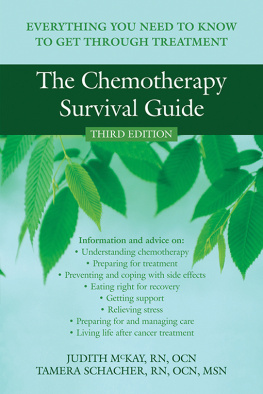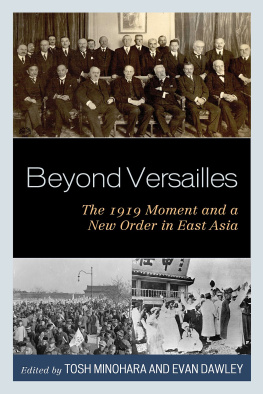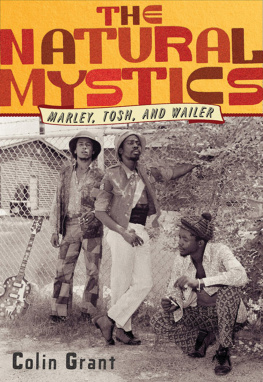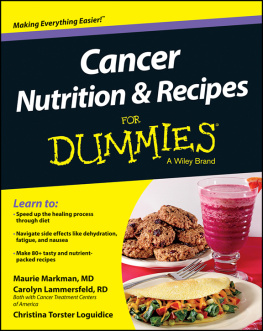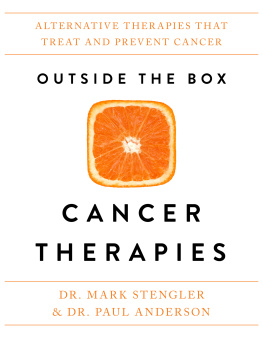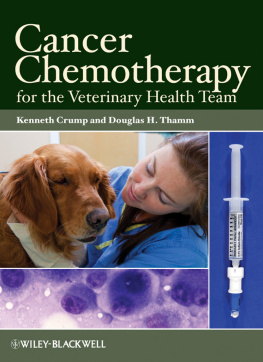
LIVING

PROOF
A Medical Mutiny
MICHAEL GEARIN-TOSH
SCRIBNER
New York London Toronto Sydney Singapore

SCRIBNER
1230 Avenue of the Americas
New York, NY 10020
Copyright 2002 by Michael Gearin-Tosh
All rights reserved, including the right of reproduction in whole
or in part in any form.
www.SimonandSchuster.com
First Scribner U.S. Edition 2002
Published by arrangement with Simon & Schuster UK Ltd.
Originally published in Great Britain in 2002 by Scribner,
an imprint of Simon & Schuster UK Ltd.
SCRIBNER and design are trademarks of Macmillan Library Reference USA, Inc.,
used under license by Simon & Schuster, the publisher of this work.
For information about special discounts for bulk purchases,
please contact Simon & Schuster Special Sales:
1-800-456-6798 or business@simonandschuster.com
Appendix by Dr. Carmen Wheatley for Caliban Scripts Ltd.
Extract from Raw Energy by Leslie Kenton published by Vermillion.
Used by permission of the Random House Group Limited.
Before I Say Goodbye, Ruth Picardie.
Reproduced by permission of Penguin Books Ltd.
Lifes Too Short, Helen Rollason.
Reproduced by permission of Hodder and Stoughton Limited.
Science and the Quiet Art, Sir David Weatherall.
By permission of Oxford University Press.
DESIGNED BY ERICH HOBBING
Text set in Bembo
Manufactured in the United States of America
3 5 7 9 10 8 6 4 2
Library of Congress Cataloging-in-Publication Data
Gearin-Tosh, Michael
Living proof : a medical mutiny / Michael Gearin-Tosh.1st ed.
p. cm.
Includes bibliographical reference.
1. Gearin-Tosh, MichaelHealth.
2. Multiple myelomaPatientsGreat BritainBiography.
3. CancerAlternative treatment I. Title.
RC280.B6G435 2002
362.1969940092dc21
[B] 2002017739
ISBN 13: 978-0-7432-2517-5
ISBN 0-7432-2517-1
eISBN 13: 978-0-7432-3420-7
CONTENTS
Living Proof
FOREWORD
The diagnosis is cancer.
The hospital tells me to start chemotherapy at once. Without it I will die in months; with it I may live for two to three years.
I ask for a second opinion.
The advice is the same: start at once.
Then a world authority on cancer says that if I touch chemotherapy, I am a goner.
Which advice do I take? Should I look elsewhere? Do I have time?
The opposite of the phrase Living Proof is, I suggest, dead wrong.
Or, if you will, wrong and dead.
The stakes are high.
What am I to do?
1
MARCH
I have no sense of being ill as I leave Oxford, where I teach in the University, for a trip to Moscow. The flight is via Paris, where a Russian lady boards.
She refuses to take her seat.
But it is by the window, Madame.
You must change, she tells the stewardess, it will frighten my dog.
A puppy is in her coat and looks relieved to stay there. But a dog on a plane what a difference from UK quarantine. And in Moscow everyone is out with a pet before going to work.
From the window of the tower block where I stay I can see spaniels, terriers, Samoyeds and a dog like a wolf. The owners smoke and take care on the ice: the only light is from street lamps, which are not bright. Dawn will not come to Moscow for a couple of hours.
My visit is at the invitation of the Russian Academy of Theatre Arts. Founded by the Czars family in 1878, the Academy continued through the Revolution and still occupies the same building not far from the Kremlin. Where the Royal Academy of Dramatic Art in London has ninety students on a three-year course, the Russian Academy has five hundred students for five years. Even in my class you sense a different scale: I meet Cossacks, a Tartar, a girl from St. Petersburg who could be a ballerina, Muscovites, students who look Scandinavian and others who come from the regions near China. All twelve time zones of Russia have been crossed to bring us together.
My task is to direct scenes from Shakespeare. As we start a Professor of the Russian Academy walks in. He comes with an entourage of two well-built ladies and a lithe assistant who smokes Turkish.
I am told to stand up.
What is your positioning with regard to truth? the Professor asks me.
I answer as best I can, but not well enough.
Am I not concerned, the Professor enquires, with Shakespeares tendency to fantasy? And what of privilege in the plays?
One of the Professors ladies writes down what is said, the second keeps an eye on me and the smoker smiles at the Professor.
He now asks me to explain the teaching of drama in the United Kingdom.
I reply that there is no single method, and that each of the British schools has their own emphasis. At the Oxford School of Dramanot a part of the University of Oxfordthe philosophy is to spend the first months concentrating on verse not prose.
Russian students do not open their mouths until they study the throat and larynx, the Professor says.
Not a hint of protest on the faces of the students.
APRIL
You look pale, says Rachel as she meets me at Heathrow.
No sun in Moscow.
Even now?
It was bright on a couple of afternoons, for an hour or so. Still cold, but people tried to sunbathe: men took off their shirts and lined up in the streets.
In contrast, there is high spring in the south of England. We sit in our garden at Oxford and listen to a blackbird: in Moscow, there were only crows.
Rachel Trickett and I have lived together for twenty-five years. We are not married, and we are not lovers. If this makes us an odd couple, neither of us gives it a thought. We adore each others company, and Rachel, daughter of a postman from Wigan, is fierce about her independence and the value of privacy.
We are both scholars of English Literature.
Rachel has retired from her official position as Principal of St. Hughs College, one of the colleges in the University. But she continues to teach both undergraduate and postgraduate students. She gives lectures to universities in the UK and the States and, at present, she is preparing a number of broadcasts for the BBC.
MAY
Oxford term starts and our weeks are full of lessons, lectures and the business of University life.
At the end of the month I catch a chill. Nothing to it, we think: I was gardening for too long in the rain. But after a day in bed I wake up wet as if I were swimming. I take off the sheets and wrap myself in towels.
Two hours later, wet again.
Rachel hates doctorsher own tells her to stop smoking and to drink less whiskybut she insists that I take advice.
I phone a doctor, who recommends paracetamol.
Two more sweating nights.
Keep up the paracetamol, the doctor repeats on the phone and drink plenty fluids.
After further nights I argue when I ring. Is not this sweating very unusual?
Possibly, but you are fifty-four.
It does not feel like flu.
You could ring your insurance company for a checkup. In the past people waited until something surfaced. But if it is the case that you want to find out what it is that might surface at some future point
It has been going on five nights.
Drink plenty fluids. Nice to hear from you.
Next page

